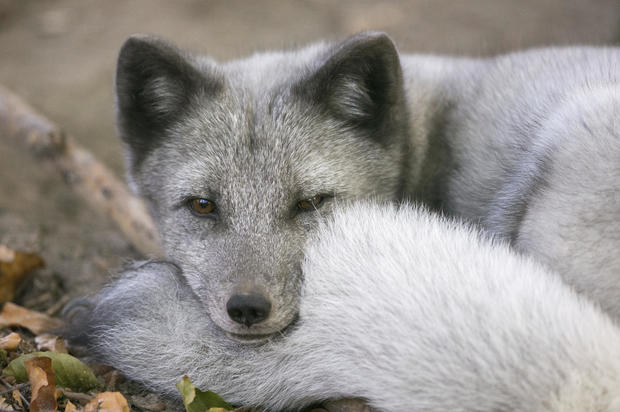A 1-year-old explorer made an epic journey from Norway to Canada, covering 2,176 miles in 76 days. That young explorer was an Arctic fox.
Scientists were left "speechless" by the fox's journey, Greenland's Sermitsiaq newspaper reports. Researchers from Norway's Polar Institute had been tracking the young female fox on a GPS, according to BBC News. They freed her into the wild on the east cost of Spitsbergen, the main island of the Svalbard archipelago of Norway.
The fox started her journey in March, at just under a year old. She walked nearly 1,000 miles from the archipelago near the North Pole to Greenland. She completed this leg in just 21 days, then began the second part of her trek.
Trending News
The fox then walked about 1,242 miles farther to Canada's Ellesmere Island. The whole trek took her just 76 days, averaging about 28.4 miles a day. Some days, however, the ambitious fox walked over 96 miles.
Eva Fuglei, a research scientists at the Polar Institute, spoke to Norway's NRK public broadcaster about the fox's unlikely journey. "We couldn't believe our eyes at first," she said. "We thought perhaps it was dead, or had been carried there on a boat, but there were no boats in the area. We were quite thunderstruck."
Fuglei has been tracking how foxes cope in with the dramatic changes of the Arctic seasons, BBC News reports. No fox has been recorded traveling that far, that fast before.
"There's enough food in the summer, but it gets difficult in winter," Fuglei told NRK. "This is when the Arctic fox often migrates to other geographical areas to find food to survive. But this fox went much further than most others we've tracked before - it just shows the exceptional capacity of this little creature." Researchers think the fox curled up in the snow to sit out the bad weather.
The Polar Institute created a gif that shows the two parts of the fox's journey across Greenland.
The fox could have traveled even farther, but scientists stopped tracking her when she reached Canada in February, because her transmitter stopped working, the Polar Institute said.
The adventurous fox may have a hard time finding food in Canada, since she ate a mainly marine diet in Svalbard. Foxes in Canada's Ellesmere Island eat mostly lemmings, which are small rodents.
It may become difficult for Arctic foxes to maintain their lives in Svalbard, due to the shrinking polar ice pack. Fuglei said there is still hope, though. "Higher temperatures could mean more Svalbard reindeer, and the foxes scavenge off their carcasses," she said.
https://www.cbsnews.com/news/scientists-speechless-after-arctic-fox-makes-76-day-trek-from-norway-to-canada/
2019-07-02 13:07:00Z
52780324773561






